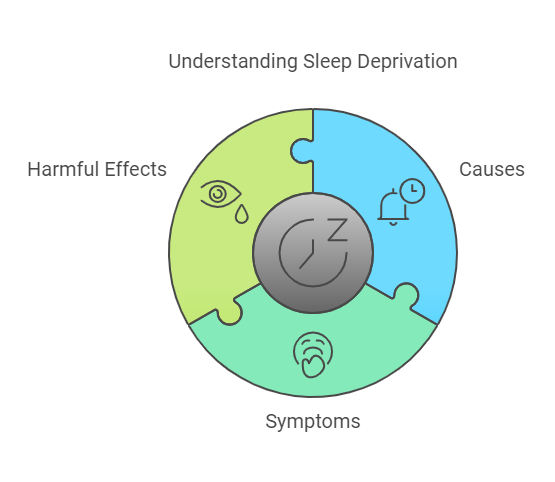No products in the cart.
No products in the cart.
🛏️Sleep deprivation is a condition that occurs when an individual does not get enough sleep, which can lead to a variety of physical and mental health issues. This document explores the causes, symptoms, and harmful effects of sleep deprivation, emphasizing its impact on overall well-being and daily functioning. Understanding the significance of adequate sleep is crucial for maintaining a healthy lifestyle and preventing long-term health complications.

Recovering from sleep deprivation depends on the severity and duration of the sleep deficit. Here’s how you can repair your sleep health and mitigate risks:
Chronic sleep deprivation requires consistent effort over weeks or even months to repair cumulative damage.

The content of this post is provided for informational purposes only. It is essential to consult with a qualified healthcare professional before making any decisions regarding your health or wellness. The author is not a licensed medical professional, and this information should not be considered medical advice.
If you need any further information or assistance with this article, don’t hesitate to Contact Us
Karen Blake
BAHN-NLP
TFT-DX



